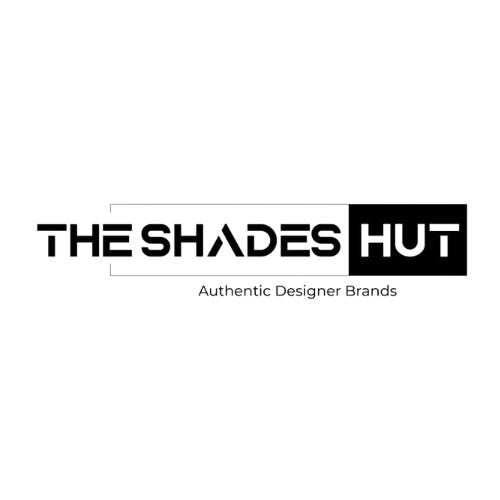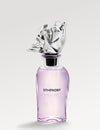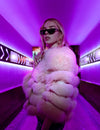![Reselling Designer Bags: Everything About It [2023]](http://theshadeshut.com/cdn/shop/articles/Reselling_Designer_Bags.jpg?v=1689963424)
Reselling designer bags, also known as reselling handbags, is a thriving and lucrative market where individuals buy luxury handbags at retail prices and subsequently sell them at higher prices to interested buyers. This popular practice allows resellers to tap into the allure of exclusive, high-end fashion, making coveted designer bags more accessible to consumers who might otherwise find them out of reach.
The process involves careful curation and a keen eye for trends, as resellers must identify sought-after styles and limited editions to maximize their profits. Online platforms and social media have played a pivotal role in propelling the reselling designer bags industry, providing a global marketplace for enthusiasts and collectors alike
As fashion continues to evolve, reselling designer bags remains an enticing venture for those with a passion for luxury goods and an entrepreneurial spirit. With each transaction, resellers cultivate a symbiotic relationship between fashionistas seeking statement pieces and those seeking to capitalize on their investment in these iconic accessories. Through this dynamic market, reselling designer bags has become a testament to the enduring appeal and value of luxury fashion in the modern world.
Why Reselling is Good?
Reselling designer bags offers several compelling advantages that appeal to both sellers and buyers in the luxury fashion market.
-
Profit Potential: One of the primary reasons why reselling is embraced is the potential for substantial profits. By acquiring sought-after and limited-edition designer bags at retail prices, resellers can capitalize on the high demand and sell them at a premium. This lucrative venture can provide an additional source of income or even turn into a full-fledged business for those with a keen eye for fashion trends.
-
Accessibility and Sustainability: Reselling handbags promotes the circular economy, extending the lifespan of luxury items. It allows fashion enthusiasts who desire designer bags but cannot afford them at retail prices to access pre-owned, authentic products at a more affordable cost. This sustainable approach helps reduce waste and lowers the overall environmental impact of the fashion industry.
-
Marketplace Diversity: The rise of online platforms and social media has expanded the reach of reselling designer bags globally. This diverse marketplace creates opportunities for sellers to connect with potential buyers from different regions, increasing exposure and facilitating a broader network of fashion enthusiasts.
-
Collecting and Investment: For buyers, reselling designer bags can be a strategic investment. Certain rare and iconic designer bags have historically appreciated in value over time, making them attractive assets for collectors and investors. Owning these limited-edition pieces can bring both personal satisfaction and potential financial gain.
-
Community and Networking: The reselling community fosters a sense of camaraderie among fashion enthusiasts. Buyers and sellers often share their passion for luxury handbags, exchange valuable insights, and collaborate to stay informed about the latest trends, releases, and market movements.
In conclusion, reselling designer bags offers a win-win situation for both sellers and buyers. It enables sellers to profit from their keen eye for fashion and trend-spotting abilities while providing buyers with access to coveted luxury items at more accessible price points. Additionally, embracing reselling contributes to a sustainable fashion ecosystem and fosters a thriving community of fashion enthusiasts united by their love for exquisite designer bags.
Is Selling Bags Profitable? Analyzing the Statistics
Selling bags, particularly luxury and designer bags, can indeed be a highly profitable venture, given the right market conditions and strategies. Several statistics highlight the lucrative potential of this business:
-
Luxury Market Growth: The luxury goods market has shown steady growth over the years. In 2020, despite the challenges posed by the pandemic, the global luxury market was valued at approximately 320 billion euros. The demand for luxury handbags remains strong, contributing significantly to this overall growth. (source: Statista)
-
Rise of Online Reselling Platforms: The proliferation of online marketplaces has revolutionized the resale industry. In 2020, the global online luxury resale market was estimated to be worth over $30 billion, with continued growth projected in the coming years. These platforms provide a vast audience and increased accessibility for sellers, enhancing their profitability. (source: Business Wire)
-
High-Value Transactions: Some rare and iconic designer bags have become investment pieces, appreciating significantly in value over time. For example, in 2021, a vintage Hermès Birkin bag sold at auction for a record-breaking $437,330. These extraordinary prices demonstrate the potential for substantial profits when dealing with exclusive and sought-after luxury bags. (source: Christie's)
-
Sustainability Boosts Demand: The increasing global focus on sustainability and ethical consumerism has boosted the demand for pre-owned luxury bags. According to a 2021 report, the market for second-hand luxury goods is projected to reach $64 billion by 2025. This trend benefits sellers in the resale market as consumers seek more sustainable and eco-friendly options. (source: Business of Fashion)
-
Growing Fashion Enthusiast Community: Social media has played a pivotal role in fostering a vibrant community of fashion enthusiasts. Popular platforms like Instagram and TikTok have given rise to a new generation of fashion influencers and content creators, driving interest in luxury handbags and creating more opportunities for sellers to connect with potential buyers. (source: Influencer Marketing Hub)
While these statistics paint a promising picture of the profitability of selling bags, it's essential to approach the market with informed decisions, thorough research, and a focus on authenticity and quality. As the fashion industry continues to evolve, those with a keen eye for trends and an understanding of consumer preferences can capitalize on this profitable and dynamic market.
Best-Selling Bags: A Lucrative Market for Reselling Designer Bags
The market for best-selling bags presents a golden opportunity for reselling designer bags, where demand for exclusive and sought-after pieces thrives. These highly coveted items, often crafted by prestigious fashion houses, hold an enduring allure for fashion enthusiasts and collectors alike. Among the best-selling bags, several iconic names continue to dominate the luxury landscape, making them prime candidates for profitable reselling ventures.
-
Hermès Birkin: The Hermès Birkin remains an unrivaled symbol of luxury and sophistication. With its meticulous craftsmanship and limited availability, the Birkin's exclusivity fuels tremendous demand in the resale market. Resellers can capitalize on the ever-growing interest in securing this timeless classic.
-
Chanel Flap Bag: The Chanel Flap Bag is an epitome of elegance, recognized for its quilted design and signature chain strap. Its enduring popularity and iconic status have established it as a top choice for reselling designer bags. As vintage models and limited editions continue to appreciate in value, resellers find ample opportunities for lucrative transactions.
-
Louis Vuitton Neverfull: A staple in the fashion world, the Louis Vuitton Neverfull remains a sought-after tote bag adored for its practicality and versatility. Its iconic monogram and limited seasonal releases contribute to its desirability in the resale market.
-
Gucci Dionysus: The Gucci Dionysus stands out with its distinctive tiger head closure and elegant silhouette. This bag's strong presence on social media and endorsement by influencers amplifies its demand, making it a lucrative choice for reselling endeavors.
-
Celine Luggage Tote: The Celine Luggage Tote's unique silhouette and minimalist aesthetic have garnered a dedicated following. As this bag's popularity endures, it continues to command high resale values, making it a profitable investment for resellers.
-
Dior Saddle Bag: The Dior Saddle Bag's iconic shape and artistic appeal have witnessed a resurgence in recent years, attracting a new wave of fashion enthusiasts. Reselling this bag can yield significant returns, particularly for vintage or limited-edition versions.
The best-selling bags serve as perennial favorites in the reselling designer bags market, captivating buyers with their timeless appeal and aspirational charm. As fashion trends evolve, these iconic pieces retain their allure, presenting lucrative opportunities for resellers who understand the value of exclusivity, rarity, and enduring style. Successfully navigating this dynamic market requires a blend of market knowledge, trend analysis, and an appreciation for the timeless beauty that these bags exude.
Is it Legal to Resell Designer Bags? Understanding the Legality
Reselling designer bags is generally legal, as long as certain conditions are met and ethical guidelines are followed. However, it's crucial for resellers to be aware of potential legal implications to operate within the boundaries of the law.
-
Authenticity and Counterfeits: Selling counterfeit designer bags is illegal and strictly prohibited. Resellers must ensure that the bags they offer are authentic and not replicas or knock-offs. Engaging in the sale of counterfeit goods can lead to severe legal consequences, including lawsuits and criminal charges.
-
First Sale Doctrine: The First Sale Doctrine, upheld in various jurisdictions, grants the original purchaser of a copyrighted item, such as a designer bag, the right to resell that item without obtaining permission from the copyright holder. This principle supports the legality of reselling authentic designer bags purchased legitimately from authorized retailers or previous owners.
-
Distribution Agreements: Some luxury brands may have specific distribution agreements that limit the sale of their products through certain channels. Resellers should be cautious not to violate any contractual agreements that could result in legal disputes.
-
Intellectual Property Rights: Resellers must be mindful of using brand names, logos, or copyrighted images without authorization, as this may infringe on intellectual property rights. It's essential to accurately represent the bags' authenticity without misleading customers or misusing trademarks.
-
Consumer Protection Laws: Resellers must comply with consumer protection laws and be transparent about the condition and authenticity of the bags they are selling. Providing accurate descriptions and disclosing any flaws or defects is essential to maintain trust and legality in the resale process.
-
Import and Export Regulations: Reselling designer bags internationally may involve complying with import and export regulations and customs duties. Familiarizing oneself with relevant laws and requirements can help avoid legal complications when dealing with cross-border transactions.
It is advisable for resellers to research the specific laws and regulations in their country or region and seek legal advice if necessary. Operating ethically and transparently, while adhering to applicable laws, ensures that reselling designer bags remains a legitimate and viable business venture. By upholding authenticity and respecting intellectual property rights, resellers can foster a positive reputation in the industry and establish a trustworthy presence in the luxury fashion market.
Ending Remarks
At TheShadesHut, we take immense pride in our expertise in reselling designer bags. As a leading platform for authentic designer pre-loved handbags, we understand the allure of luxury fashion and its appeal to fashion enthusiasts worldwide. Our commitment to offering a one-stop destination for the best-selling bags ensures that customers can indulge in the elegance and exclusivity of their favorite designer pieces.
As we curate our collection, authenticity is our top priority. Each designer bag we present undergoes a meticulous verification process to ensure its genuineness. We staunchly avoid counterfeit products, as we firmly believe in maintaining the highest standards of legality and ethical practices in the luxury resale market.
Respecting intellectual property rights and adhering to consumer protection laws are integral elements of our business model. Our transparent and accurate descriptions of each bag's condition empower customers to make informed decisions, fostering trust and reliability in every transaction.
With the global luxury resale market experiencing significant growth, our dedication to authenticity and ethical principles has played a pivotal role in our success. Fashion enthusiasts continue to turn to TheShadesHut as their preferred destination for acquiring exquisite designer bags that stand the test of time.
Choosing TheShadesHut means not only gaining access to the most sought-after bags but also supporting a sustainable fashion ecosystem. Our commitment to exceptional customer experiences has cultivated a loyal community of fashion lovers who share our passion for authenticity and excellence.
In conclusion, at TheShadesHut, reselling designer bags is not just a business venture; it is our genuine passion. We take great pride in connecting customers with their dream handbags while upholding the utmost legality, ethics, and authenticity in every step of our journey.
Leave a comment









